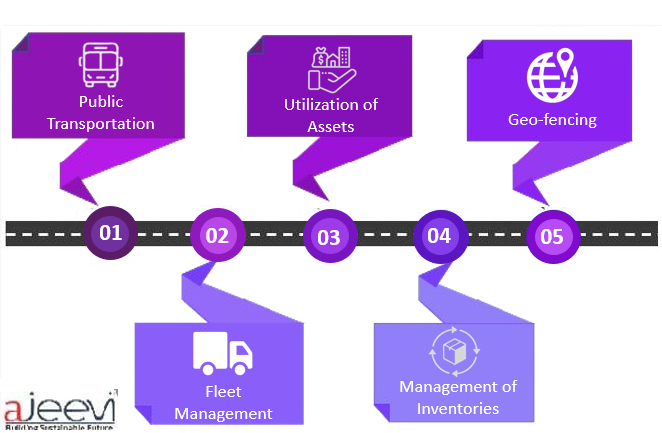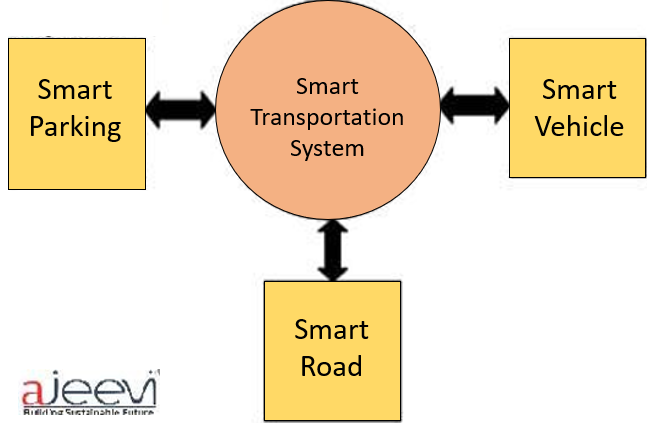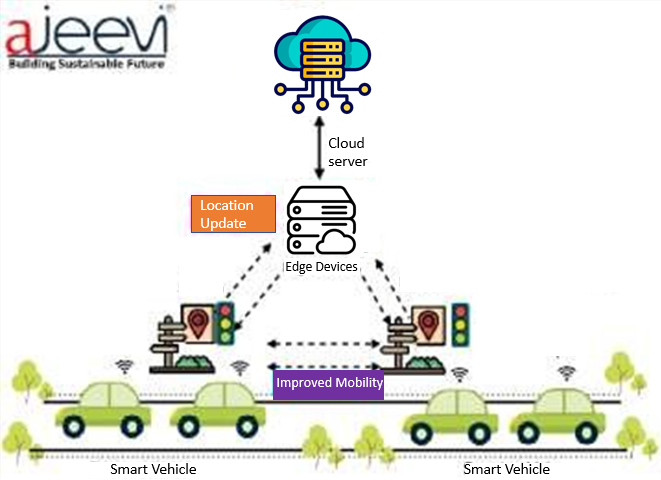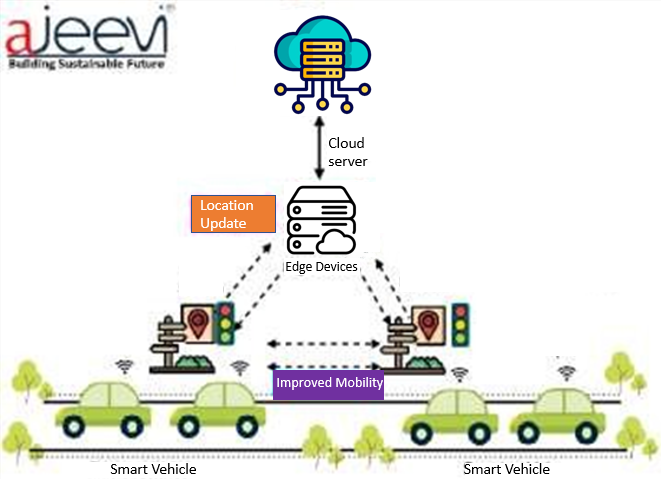Resources-> Blogs -> Smart Transport Management



Summary:
The integration of the Internet of Things (IoT) into transportation has transformed the industry by employing interconnected devices, sensors, and real-time data analytics, thereby increasing efficiency, safety, and sustainability. IoT creates a continuous network of cars , infrastructure, and users, allowing for real-time monitoring and dynamic traffic control. Key benefits include improved vehicle connectivity, intelligent traffic management, predictive maintenance, smart parking solutions, optimised public transit, better fleet management, and support for self-driving vehicles. IoT also extends to non-motorized modes of transportation, enabling smart infrastructure for bicycles and walkers, as well as real-time trip information systems. This change improves environmental sustainability by monitoring urban air quality and emissions and promoting greener transport choices. Overall, IoT-based Smart Transport Management solutions modernise urban transport networks by greatly increasing efficiency, safety, and sustainability.

IoT enables connectivity in vehicles, allowing them to communicate with each other and with the infrastructure. This connectivity enhances safety through features like collision avoidance systems, real-time traffic updates, and automated emergency services.
Intelligent Traffic Management:IoT sensors and cameras integrated into traffic infrastructure enable real-time monitoring of road conditions. This data is used for dynamic traffic management, ptimizing traffic signal timings, identifying congestion, and rerouting vehicles to alleviate traffic bottlenecks.
Predictive Maintenance:IoT sensors installed in vehicles and transport infrastructure monitor the condition of components in real time. This data is used for predictive maintenance, enabling timely repairs and reducingdowntime for vehicles and infrastructure.
Smart Parking Solutions:IoT-powered smart parking systems provide real-time information on available parking spaces. This helps drivers locate parking quickly, reducing traffic congestion and emissions while improving the overall parking experience.
Public Transportation Optimization:
IoT is used to optimize public transportation systems, providing real- time data on bus or train locations, schedules, and occupancy. This helps commuters plan their journeys moreefficiently and reduces wait times.
Fleet Management:For logistics and transportation companies, IoT aids in fleet management. Sensors on vehicles provide information on fuel consumption, driver behavior, and vehicle health. This data allows for route optimization, fuel efficiency improvements, and better overall fleet performance.
Autonomous Vehicles:IoT technologies are fundamental to the development of autonomous vehicles. Sensors, cameras, and communication systems enable self-driving cars to navigate safely, communicate with other vehicles and infrastructure, and make real-time decisions based on the surrounding environment.
Smart Infrastructure for Bicycles and Pedestrians:IoT extends to non-motorized transport as well. Smart infrastructure, such as connected pedestrian crossings and bicycle lanes, enhances safety for cyclists and pedestrians by providing real-time signals and alerts to improve visibility for all road users.
Traveler Information Systems:IoT contributes to traveler information systems that offer real-time updates on transportation options, delays, and alternative routes. Passengers can receive personalized journey information through mobile apps or digital displays at transportation hubs.
Environmental Monitoring and Sustainability:IoT sensors monitor air quality, noise levels, and emissions in urban areas. This data contributes to sustainable transport planning, helping cities reduce environmental impact and improve overall urban air quality.
The adoption of a Smart Transport Management system based on IoT technology is a big step forward in modernising urban transport networks. Cities may attain new levels of efficiency, safety, and sustainability in their transportation infrastructure by integrating IoT-enabled sensors, real-time data nalytics, and modern communication systems. IoT devices serve an important role in constantly monitoring numerous metrics such as traffic flow, vehicle speed, and environmental conditions. This real-time data collecting enables dynamic traffic management, lowers congestion, and improves route design. Furthermore, IoT-based systems enable predictive maintenance of transport assets, reducing downtime and increasing the lifespan of infrastructure.
Ajeevi Technologies provides innovative and customized solutions in the areas of smart cities, internet of things (IoT), and sustainable development which include:
IoT-enabled Solutions
Ajeevi Technologies has developed IoT-enabled solutions to improve the functioning of cities. Ajeevi offers a range of solutions like smart parking, smart street lighting, smart waste management, and smart water management systems that are connected to the internet and can be monitored and managed remotely.
Sustainable Energy Solutions
Ajeevi Technologies is focused on developing sustainable energy solutions for smart cities and provide solutions that are energy-efficient and rely on renewable energy sources such as solar and wind power.
Data Analytics
Ajeevi Technologies uses data analytics to gather and analyze data to provide insights into the functioning of the city. Ajeevi uses this information to optimize operations, improve service delivery, and make data-driven decisions.
Citizen Engagement
Ajeevi Technologies is committed to citizen engagement and involving citizens in the planning and implementation of smart city solutions. Ajeevi has developed platforms for citizen engagement, including mobile apps, web portals, and social media, which enable citizens to provide feedback, report issues, and participate in decision-making.
Overall, Ajeevi Technologies’ contributions to smart city solutions are aimed at making cities more sustainable, efficient, and citizen-friendly. Our
innovative solutions, focus on sustainability and citizen engagement make them a valuable player in the smart city space. http://www.ajeevi.com

Android Handheld UHF Reader
Automatic Boom Barrier
Automatic Number Plate Reader Camera
Bin Level Sensor
Bio Metrics Machine
Bullet Camera Live
Chlorine Sensor
Data Transmission Unit
Emergency Call Box
Environment Sensor
Face Recognition
Flood Sensor
Fuel Sensor
Galvanized Iron Pole
Gi-Pole
GPS
GPS-AIS140
Handheld HF Reader
Handheld UHF Reader
PTZ Camera
Public Address Speaker
Public Address System
Hydraulic Boom Barrier
IP Bullet Camera
IRIS
Magnetic Sensor
Network Rack
Network Video Recorder
Panic Button
Parking Entry Exit UHF Reader Vehicle Mounted UHF Reader
Passenger information systems
Ph Sensor
Refrigerator Sensor
RFID Tag – HF
RFID Tag – UHF
RFID Tag Metal – UHF
Smart Kiosk
Smart Pole
Soil Sensor
Drainage Sensor
Temperature Sensor
Turbidity Sensor
Ultrasonic Flow Meter Variable Sign Board Weigh Bridge Entry Exit Reader
Thanks for ” Downloading”, “Discovering”, “AJEEVI Products”, hit the submit button requisite information will be in your email box shortly.
Ajeevi Offer “Enterprise IoT Solutions” with in-house R&D, Capability of manufacturing IOT devices.
505, Tower A-1, Corporate Park
Noida 201301, Uttar Pradesh India
presales@ajeevi.com
+91-9654323500